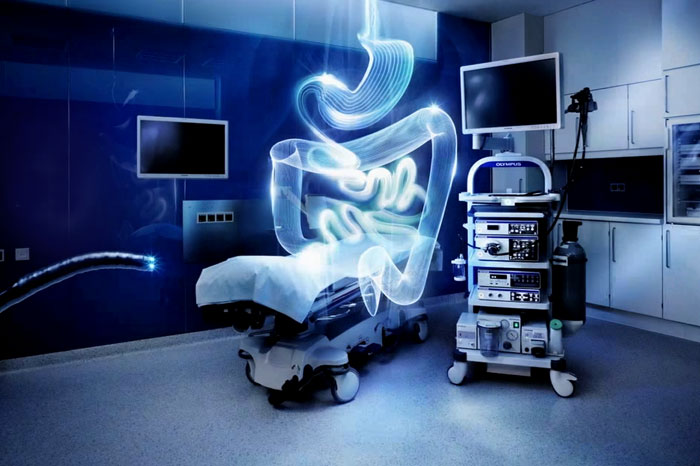Additional Coverage
WTNH-TV, March 13, 2013
![]()
WTIC Radio Interview, March 17, 2013
![]()
NBC Connecticut, March 18, 2013
![]()
Colorectal cancer is the second leading cause of cancer death but it is an extremely preventable disease if you go for regular screenings starting at age 50, earlier if you have a family history.
The UConn Health Center has new devices that are state-of-the-art in detecting and removing cancer in its earliest stages.
UConn is one of the first medical centers to use high definition endoscopes which have higher resolutions to better detect smaller polyps during a colonoscopy and see the surface of your colon more clearly.
Dr. John Birk, chief of the Division of Gastroenterology at the UConn Health Center, says these new endoscopes have been shown to increase your polyp detection rate and therefore identify patients who are at an increased risk for colon cancer.
The scopes are more flexible and the close focus helps determine whether it’s a true polyp or just a bump. It takes about 10 years to go from polyp to cancer, but not all polyps are cancerous.

Risk factors for colon cancer include age, race, smoking and obesity.
Colorectal cancer in its early stages usually doesn’t cause any symptoms. Symptoms occur later, when the cancer may be more difficult to treat.
The most common symptoms include:
- Pain in the belly.
- Blood in your stool or very dark stools.
- A change in your bowel habits (such as more frequent stools or a feeling that your bowels are not emptying completely).
- Constant tiredness.
- In rare cases, unexplained weight loss.
Follow the UConn Health Center on Facebook, Twitter and YouTube.



